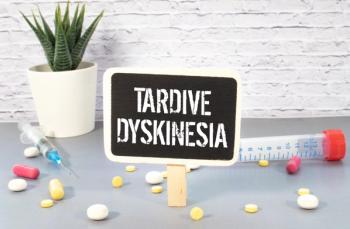
Precision Prescribing Can Advance Mental Health Treatment
Pharmacogenetics can inform precision prescribing practices, which in turn can solve the inefficiencies of current prescribing models.
Mental health services were stretched before the start of the COVID-19 pandemic in 2020. The pandemic’s impact on daily living these past two years created an even greater demand for mental health services. With the prevalence of anxiety and depression increasing1 since the pandemic began, access to mental health care is backlogged to the point of distress—which makes precision prescribing for mental health medication essential for improving safe and effective treatment options for all patients. Beyond helping to increase mental health support, precision prescribing also can be a time and cost saver for pharmacists, physicians and payers.
Precision prescribing is a scientifically proven but relatively new term involving a comprehensive medication management approach by physicians and pharmacists. Precision prescribing can be defined as a predictive, evidence-based, comprehensive practice that brings together the relevant clinical factors for prescribing, such as patient medical history, current and previous diagnoses, comorbidities, liver function, kidney function, previous and potential drug-drug interactions, and patient pharmacogenetics. Precision prescribing needs to be delivered in a user-friendly environment and embedded into the already established clinical workflows in order to release its potential and, thus, be adopted by providers. Typically, the best way to deliver it is within a clinical decision support system format.
Precision prescribing can help solve the inefficiencies and inaccuracies of our current prescribing model with real-time clinical decision support tools that are informed by pharmacogenetics (PGx). In a nutshell, pharmacogenetics plays a role in patients’ genetic information in how they may respond to medications.
Because medications and treatments are tested on large populations and are prescribed using statistical averages, some drugs work for some patients—but not for all, often due to genetic differences. PGx testing, for which coverage has been increasing recently by the Center for Medicare and Medicaid Services (CMS) and payers, can provide a genetic blueprint for each patient that is clinically valid and cost-effective. In fact, United Healthcare recently updated its PGx guidelines2 this year specific to include patients with depression who have not responded to a first-line medication.
In a recent meta-analysis of 5 prospective, randomized controlled trials on depressive symptom remission published between 2013 and 2019,3 the initial findings for 1737 patients showed that those who received PGx-guided therapy (n=887) were 1.71 times more likely to achieve symptom remission compared with receiving usual treatment.
You cannot have precision prescribing without PGx, but to accurately assess each patient and prescribe the right drug at the right time involves evaluating factors beyond PGx results. The issue is more complicated for patients with chronic diseases and for patients taking 3 or more medications a day.
The century old trial-and-error approach to prescribing drug therapies and treatments—for mental health and other conditions—must change. Reasons for that change include:
Increasing response rates to treatments and therapies.
- Research shows that up to half of all patients being treated for mental illness do not respond as desired to the first psychiatric medication prescribed.4
- Only 30% of patients suffering from major depressive disorder, bipolar disorder, or schizophrenia remain compliant with medication and reach full and stable remission.5
- A systemic review showed that nonresponders to 1 or more treatments have a 15% likelihood of suicide ideation compared to 6% of patients with treatment-responsive depression and 1% In the general population.5
Reducing adverse drug events.
- Adverse drug reactions are the fourth-largest cause of death in the United States, costing taxpayers approximately $130 billion each year.6
- In the United States. 25,000 patients present to emergency departments for antidepressant-induced adverse effects each year.7
Creating efficiencies that increase capacity for more patients to receive care.
- Most family physician and patient consultations are between 5 and 20 minutes long, which does not leave much time for thinking about complex variables.
- Precision prescribing makes consultation prescribing time more efficient, allowing providers to see more patients and address care backlogs like those for mental health conditions.
Reducing health care costs.
- With precision prescribing embedded with PGx testing data, a 2018 study in a real-world clinical setting showed a cost savings of $3,962 per patient with depression.8
- With a focus on value-based care, precision prescribing can help lower overall health care costs by advancing accuracy, efficiency, safety and patient outcomes.
So how do we move to precision prescribing? Technology—such as software that is evidence-based and compiles information in a user-friendly fashion—is already available. GenXys is using predictive risk scoring with a population-based approach that informs an organization/practice about the characteristics of the population and what proportions may be at risk. It is designed to help with the planning of a PGx strategy that allows an organization to determine the criteria (risk/condition/drug) to use to determine whom to offer PGx testing to in order to reduce adverse drug events and risk to renal and liver function.
In the normal pathway of new concepts and new technology in health care, precision prescribing is advancing through a necessary adoption process to become standard of care. Companies like GenXys are working to prove precision prescribing’s clinical utility and actionability, along with cost-effectiveness and a user-friendly integration into the day-to-day ecosystem.
GenXys has been engaged with United States congressional offices for many months on progressing bills on the use of PGx and associated clinical decision support software. The Right Drug Dose Now Act9 is important for all of health care and will drive adoption of PGx by more health systems and payers with their testing needs met by lab testing companies. It will be United States legislation, but its guidance will be replicated globally.
One result of the global adoption of precision prescribing with PGx will be that physicians can make faster and more accurate prescription decisions. Pharmacists can stop doing manual medication assessments that oftentimes take up to an hour—instead completing them in seconds. This speed and accuracy are what patients expect today as consumerism drives health care.
Precision prescribing with embedded PGx will transcend the continuum of care, from the family doctor, to the pharmacist, to the emergency department. It will have a positive impact on patient outcomes for those with mental health and other conditions and illnesses, and it will undoubtedly advance value-based care and save lives.
Bernard Esquivel, MD, PhD, MHA, is a practicing physician-scientist, senior executive, and international leader with in-depth expertise developing new markets, devising compelling value propositions, go-to-market strategies, and launching programs to fulfill organizational goals and objectives in the healthcare space. Notably, he mobilized a local healthcare community to engage in the practice of precision medicine by founding and presiding over the Latin American Association of Personalized Medicine (ALAMP). This organization now includes more than 500 members from nine countries in Latin America.
References
- Tackling the mental health impact of the COVID-19 crisis: An integrated, whole-of-society response. Organization for Economic Co-operation and Development. Published May 12, 2021. Accessed May 6, 2022.
- Pharmacogenetic testing. UnitedHealthcare Commercial Medical Policy. Effective January 1, 2022. Accessed May 6, 2022.
https://www.uhcprovider.com/content/dam/provider/docs/public/policies/comm-medical-drug/pharmacogenetic-testing.pdf - Bousman CA, Arandjelovic J, Mancuso SG, Eyre HA, Dunlop BW.
Pharmacogenetic test and depressive symptom remission: A meta-analysis of randomized controlled trials. Pharmacogenomics. 2019;20(1):37-47. doi:10/2217/pgs-2018-0142 - van Shaik RHN, Müller DJ, Serretti A, Ingelman-Sundberg M.
Pharmacogenetics in psychiatry: An update on clinical usability. Front Pharmacol. 2020;11:575540. doi:10.3389/fphar.2020.575540 - Questions and answers about the NIMH sequenced treatment alternatives to relieve depression (STAR*D) study—all medication levels. National Institute of Mental Health. Published November 2006. Accessed May 6, 2022.
https://www.nimh.nih.gov/funding/clinical-research/practical/stard/allmedicationlevels - Preventable adverse drug reactions: A focus on drug interactions. FDA. Updated March 6, 2018. Accessed May 6, 2022.
https://www.fda.gov/drugs/drug-interactions-labeling/preventable-adverse-drug-reactions-focus-drug-interactions - Hicks JK, Bishop JR, Gammal RS, Sangkuhl K, et al.
A call for clear and consistent communications regarding the role of pharmacogenetics in antidepressant pharmacotherapy. Clin Pharmacol Ther. 2020;107(1):50-52. doi:10.1002/cpt.1661 - Maciel A, Cullors A, Lukowiak AA, Garces J.
Estimating cost savings of pharmacogenetic testing for depression in real-world clinical settings. Neuropsychiatr Dis Treat. 2018;14:225-230. Doi:10.2147/NDT.S145046 - H.R. 6875—Right Drug Dose Now Act. 117th Congress (2021-2022). Accessed May 6, 2022.
https://www.congress.gov/bill/117th-congress/house-bill/6875/text
Newsletter
Pharmacy practice is always changing. Stay ahead of the curve with the Drug Topics newsletter and get the latest drug information, industry trends, and patient care tips.























